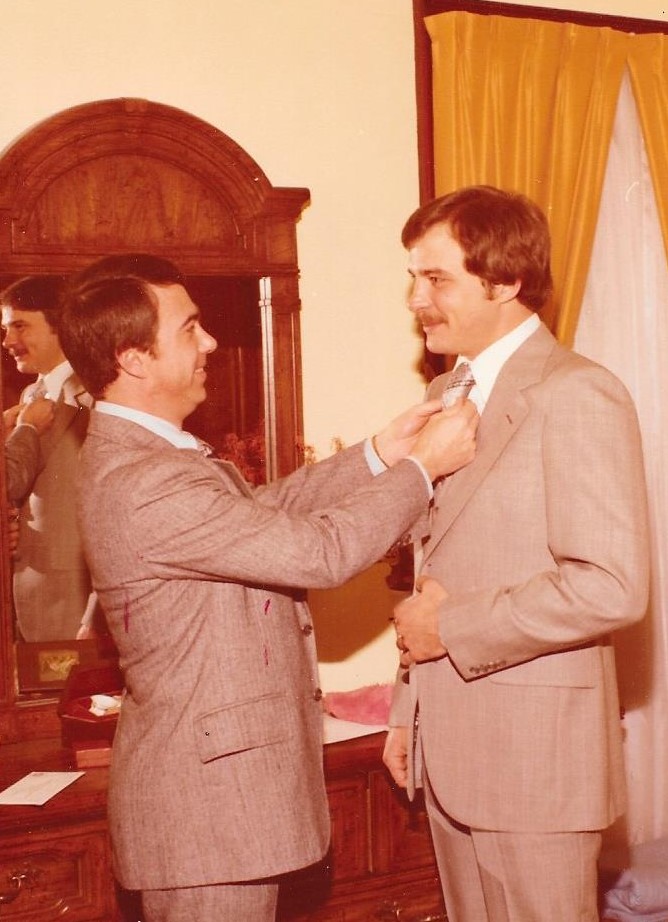As I wrote last month, the idea of stories immediately brings thoughts of my father, who was an extraordinary storyteller.
Dad died a few weeks ago, on October 6.
Few people talk about grief openly, outside of funerals and memorials. How it commingles sadness, anger, and, strangely enough, laughter. This is the goal of a funeral, right? To share these strange feelings together, to commiserate and grieve a loss of someone important to you, to tell stories of the person no longer with us. To give closure to friends and family members, and enable movement forward.
But what happens when you can’t gather?
One of the things that made me angriest in the days after my father’s passing was the knowledge that I couldn’t mourn with anyone outside my immediate family. My dad’s lifelong friends are far away in Missouri and Illinois, and I can’t gather them for fear of spreading COVID. As the only child of an only child (of an only child), I’m my father’s primary mourner. No siblings or aunts and uncles to share stories with. I never realized how isolating that could be.
The week after he died, I was speaking with friends over Zoom, and I mentioned how frustrated I was that we couldn’t gather for months. A friend suggested collecting the stories via email now – there’s no need to wait for a memorial to gather stories about him. I was dumbfounded that I hadn’t realized this myself. We’ve been discussing the collection of stories in this class all semester… yet I couldn’t remove myself from the idea that the sharing of someone’s stories happens at a memorial, in person.

So I spread the word, through text message and Facebook post and email: Send me your stories about Dad. Remind me about his wild and crazy days. Tell me the story about how he ended up in the hospital with a fishing lure in his ear. Share photos of your trips together, and your days at work together.
And they have been trickling in. At first every day, now every few days, I get a new memory of my dad in my inbox. Stories of him teaching my high school friend how to swing dance. Stories of how fun he was to work with. Stories about him checking in on the teenage neighbor who might have been throwing a party when his parents were out of town.
Stories have the power to heal. They are important to tell, and important to share. We need to celebrate that, both as librarians and as humans.
1 Comment
A library display on Alzheimer’s disease – JRB librarian · November 1, 2022 at 3:00 pm
[…] that have Alzheimer’s. It also gave me a deadline for a long dormant project: Collecting the stories and photographs gathered in the days and weeks after my father’s death and publishing them in a book about him, in […]
Comments are closed.